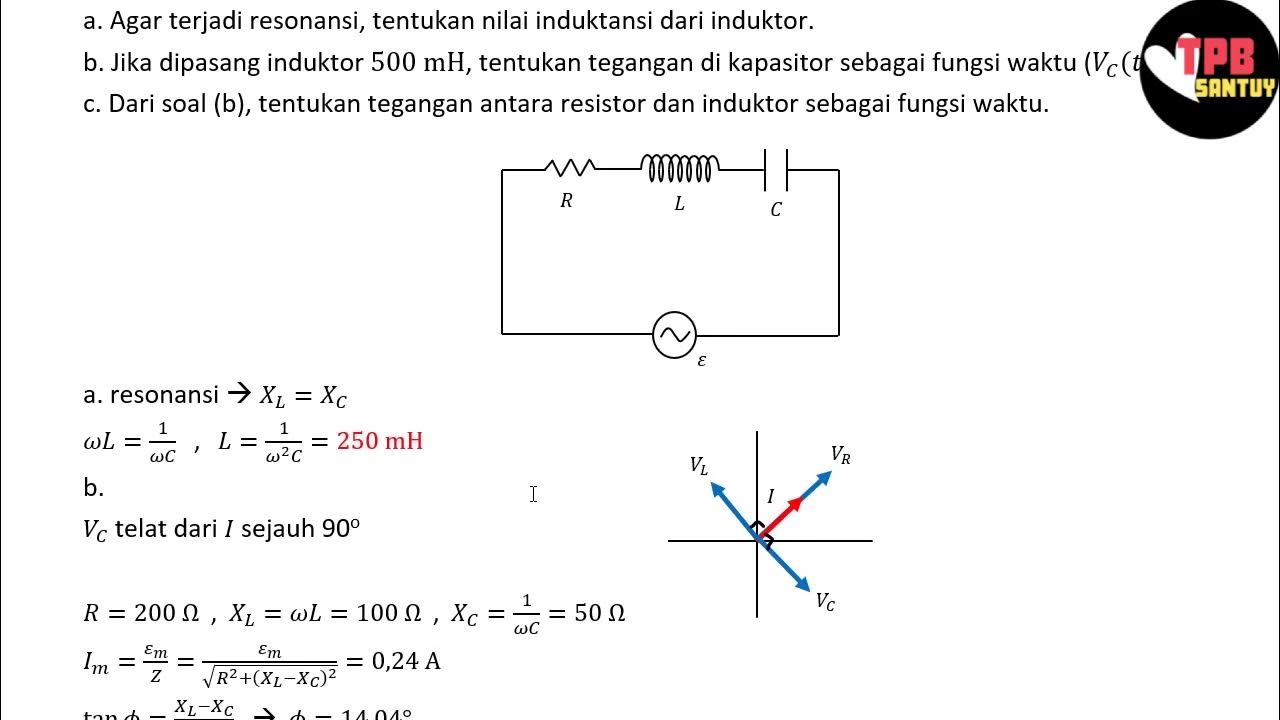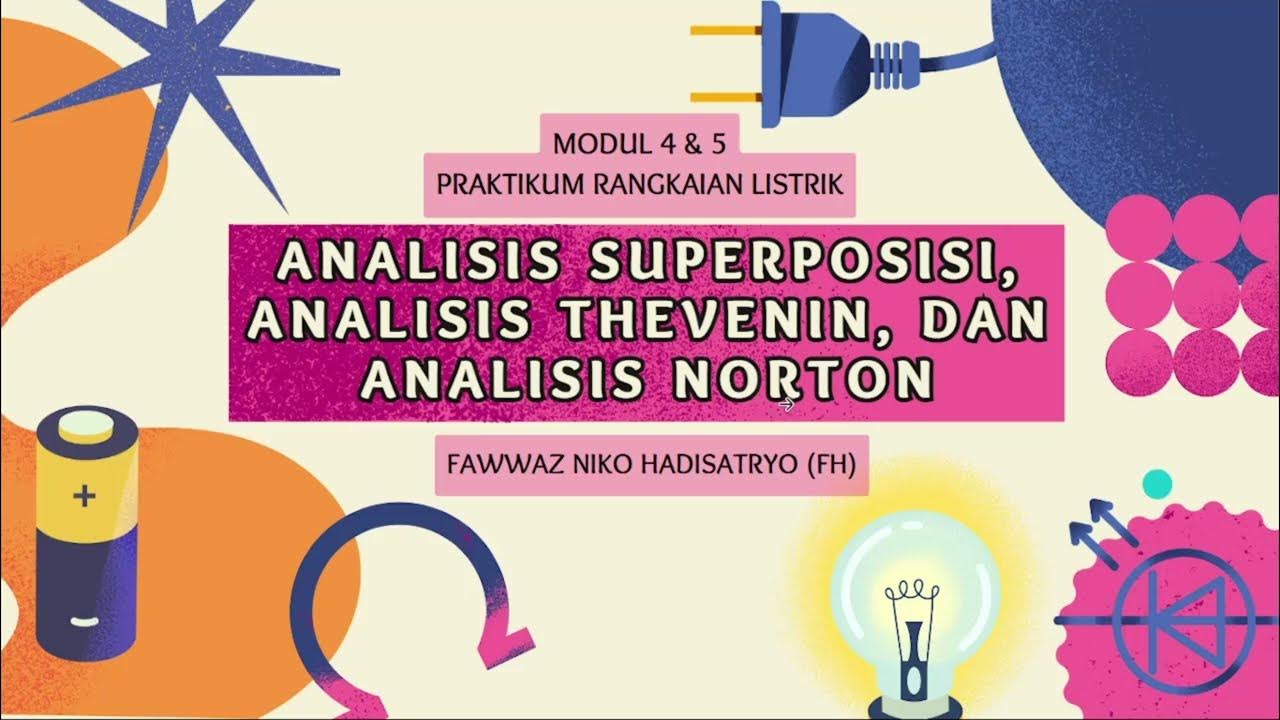Voltage, Current, and Power Explained - Laying the Foundation for Basic Circuits | Basic Electronics
Summary
TLDRThis tutorial aims to simplify the complex world of circuits by focusing on foundational concepts like voltage and current, using analogies to make them intuitive. It clarifies common misconceptions and emphasizes the importance of understanding the difference between power and energy. The goal is to provide a solid foundation for further study in electronics, with practical insights that highlight the significance of voltage and current in circuit analysis.
Takeaways
- 🌟 The tutorial series aims to teach the basics of circuits, focusing on understanding concepts rather than complex math.
- 🔋 Voltage is the potential difference that drives the movement of electrons, often compared to the potential energy of water at different heights.
- 💧 Current represents the flow of electrons, similar to the flow of water when a glass is tipped.
- 🔌 It's common to misuse the terms 'voltage' and 'current'; voltage is across a component, whereas current is through it.
- ⚠️ Misunderstanding the difference between voltage and current can lead to incorrect assumptions about electrical systems.
- 🔥 High current values, such as amps, are more impressive and potentially dangerous than high voltage values.
- 🔌 The speaker emphasizes the importance of distinguishing between 'volts across' and 'amps through' a component.
- 🔄 Power is the rate at which work is done, a combination of voltage and current, and is different from energy.
- ⏳ Energy is the capacity to do work and is often considered in terms of power over time, or energy per second.
- 🔌 In circuits, power is more commonly the focus, but energy becomes important when dealing with components like capacitors.
- 📚 The tutorial encourages learning the foundational concepts of voltage and current for circuit analysis and to check out additional resources for a deeper understanding.
Q & A
What is the main goal of the tutorial series on circuits mentioned in the script?
-The main goal is to provide an understanding of circuit concepts from the beginning to the end, focusing on intuitive understanding rather than complex math, so that viewers can have a good feel for what circuits do.
Why is it incorrect to say 'volts through something' instead of 'volts across something'?
-It's incorrect because 'volts through something' implies current, which is the flow of electrons. 'Volts across something' correctly refers to the potential difference or voltage potential between two points.
What is the difference between voltage and current according to the script?
-Voltage is the potential energy difference or desire for electrons to move from one place to another, while current is the actual flow of electrons, like the movement of water when a cup is tipped.
What is the water analogy used to explain voltage and current?
-The water analogy compares voltage to water at a higher level wanting to flow down due to potential energy, and current to the actual flow of water when it moves from the higher level to the lower level.
Why are bigger numbers in amps more impressive than bigger numbers in volts?
-Bigger numbers in amps are more impressive because they represent a larger flow of electrons, which can produce significant effects, like melting wires, whereas high voltages can be managed without such dramatic effects.
What is the basic difference between power and energy as explained in the script?
-Power is the rate at which work is done or energy is transferred, often measured in watts, while energy is the capacity to do work, often measured in joules or watt-hours.
Why are capacitors said to have a high power density but not necessarily a high energy density?
-Capacitors can release current very quickly, which means they can produce a lot of power in a short time, but they don't hold much energy, so their energy density is lower compared to a battery that can sustain power over a longer period.
What are the two most important concepts in circuit analysis according to the script?
-The two most important concepts are voltage and current, as the majority of circuit analysis involves solving for voltage across components or current through components.
What is the significance of understanding the difference between voltage and current in circuit analysis?
-Understanding the difference is crucial because it affects how one interprets and calculates the behavior of circuits, including power calculations and the ability to predict circuit performance.
Why does the script emphasize the importance of not confusing current and voltage?
-Confusing current and voltage can lead to incorrect assumptions and calculations in circuit analysis, which is critical for designing and understanding the performance of electrical systems.
What additional resource is mentioned in the script for further learning about circuits?
-A written tutorial on circuitbred.com is mentioned as an additional resource that provides a different perspective and more in-depth explanations of some concepts.
Outlines

Этот раздел доступен только подписчикам платных тарифов. Пожалуйста, перейдите на платный тариф для доступа.
Перейти на платный тарифMindmap

Этот раздел доступен только подписчикам платных тарифов. Пожалуйста, перейдите на платный тариф для доступа.
Перейти на платный тарифKeywords

Этот раздел доступен только подписчикам платных тарифов. Пожалуйста, перейдите на платный тариф для доступа.
Перейти на платный тарифHighlights

Этот раздел доступен только подписчикам платных тарифов. Пожалуйста, перейдите на платный тариф для доступа.
Перейти на платный тарифTranscripts

Этот раздел доступен только подписчикам платных тарифов. Пожалуйста, перейдите на платный тариф для доступа.
Перейти на платный тарифПосмотреть больше похожих видео

Natężenie, napięcie, opór elektryczny - prostym językiem

Analisis Rangkaian AC | Rangkaian AC | Part 3 | Fisika Dasar

Circuit Analysis: Crash Course Physics #30

Video Pembelajaran Modul 4 & 5 Praktikum Rangkaian Listrik 2024/2025 (FH)

Hukum Ohm (Ohm's Law) - Konsep Tegangan (V), Kuat Arus (I), Hambatan (R)

IPA Kelas 9 : Listrik Dinamis 3 (Rangkaian Hambatan Seri dan Paralel)
5.0 / 5 (0 votes)
